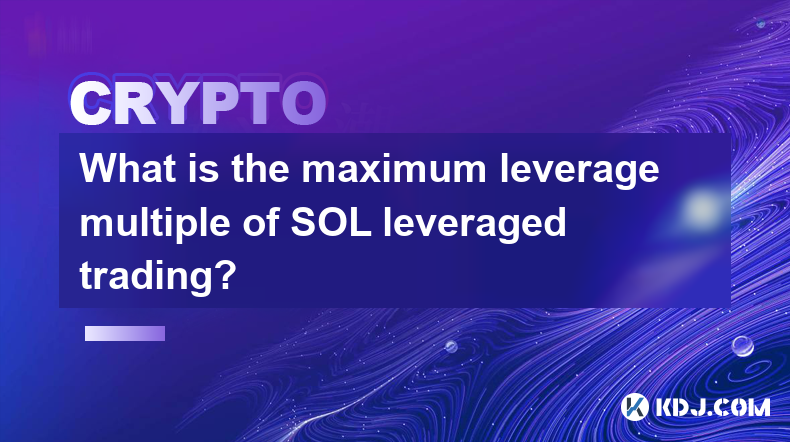-
 Bitcoin
Bitcoin $106,437.2012
0.82% -
 Ethereum
Ethereum $2,442.5287
0.82% -
 Tether USDt
Tether USDt $1.0005
-0.02% -
 XRP
XRP $2.1812
-0.27% -
 BNB
BNB $645.1327
0.45% -
 Solana
Solana $146.2379
0.39% -
 USDC
USDC $0.9999
-0.01% -
 TRON
TRON $0.2751
0.92% -
 Dogecoin
Dogecoin $0.1662
-0.23% -
 Cardano
Cardano $0.5827
-1.22% -
 Hyperliquid
Hyperliquid $37.5225
0.04% -
 Bitcoin Cash
Bitcoin Cash $479.0877
4.02% -
 Sui
Sui $2.7846
-3.27% -
 Chainlink
Chainlink $13.3576
0.84% -
 UNUS SED LEO
UNUS SED LEO $9.0252
-1.20% -
 Stellar
Stellar $0.2455
-1.07% -
 Avalanche
Avalanche $18.0680
-1.81% -
 Toncoin
Toncoin $2.8948
-1.07% -
 Shiba Inu
Shiba Inu $0.0...01164
-1.65% -
 Litecoin
Litecoin $85.0637
-0.06% -
 Hedera
Hedera $0.1526
-0.89% -
 Monero
Monero $316.2941
0.78% -
 Ethena USDe
Ethena USDe $1.0003
-0.04% -
 Polkadot
Polkadot $3.4113
-1.87% -
 Dai
Dai $1.0000
-0.01% -
 Bitget Token
Bitget Token $4.4488
5.16% -
 Uniswap
Uniswap $7.1740
3.09% -
 Pi
Pi $0.5968
11.43% -
 Pepe
Pepe $0.0...01010
-0.65% -
 Aave
Aave $264.3189
0.40%
What is the maximum leverage multiple of SOL leveraged trading?
Solana's maximum leverage varies drastically across exchanges, with no universal limit. Each platform sets its own limits based on factors like market volatility, trader history, and risk assessment, highlighting the need for thorough research before leveraged trading.
Mar 26, 2025 at 02:50 am

Key Points:
- Solana's maximum leverage for leveraged trading varies significantly across different cryptocurrency exchanges. There's no single, universally applicable maximum leverage.
- Leverage levels are determined by individual exchanges and are subject to change based on market conditions and risk assessments.
- Higher leverage amplifies both profits and losses, significantly increasing the risk of liquidation.
- Factors influencing maximum leverage include the exchange's risk management policies, the volatility of SOL, and the trader's account history.
- Users should carefully consider their risk tolerance and understand the mechanics of leveraged trading before engaging in it.
What is the maximum leverage multiple of SOL leveraged trading?
The question of the maximum leverage multiple for SOL leveraged trading doesn't have a single, definitive answer. Unlike some assets with regulated leverage limits, the maximum leverage available for trading SOL varies considerably depending on the cryptocurrency exchange you use. Each exchange sets its own limits based on a complex interplay of factors.
One crucial factor is the exchange's risk assessment. Exchanges constantly monitor market volatility and adjust leverage limits accordingly. During periods of high volatility in the SOL market, exchanges may reduce maximum leverage to mitigate risks for both the exchange and its users. Conversely, during calmer periods, higher leverage might be offered.
Another factor is the individual trader's profile. Exchanges often consider a trader's trading history, account size, and risk profile when determining the maximum leverage they can access. Experienced traders with a proven track record might be granted higher leverage than newer traders. This is a risk management strategy employed by exchanges to protect themselves from significant losses.
The specific characteristics of SOL itself also play a role. Because Solana's price can fluctuate significantly, exchanges might naturally apply lower maximum leverage compared to assets with less price volatility. This reduces the risk of rapid liquidations, protecting both the trader and the exchange.
Let's look at some hypothetical examples to illustrate this variability. Exchange A might offer a maximum leverage of 5x for SOL trading, while Exchange B might only offer 3x, and Exchange C could offer up to 10x, depending on market conditions and the individual trader's standing. This variation highlights the importance of researching each platform before engaging in leveraged trading.
Furthermore, the type of leveraged product offered also impacts the leverage available. Perpetual contracts, for instance, often allow for higher leverage than futures contracts due to their design. The terms and conditions of each specific trading product should be carefully examined.
It is crucial to remember that leverage magnifies both potential profits and potential losses. A 5x leverage means a 10% price increase translates to a 50% gain on your investment, but a 10% price decrease results in a 50% loss. This amplified risk necessitates a thorough understanding of risk management techniques, including setting stop-loss orders to limit potential losses.
Using leverage effectively requires discipline and a clear understanding of market dynamics. Improper leverage utilization can lead to rapid liquidation, resulting in the loss of the entire invested capital. Therefore, responsible risk management is paramount. Never invest more than you can afford to lose.
Before engaging in leveraged trading of SOL, it is vital to understand the specific terms and conditions of the exchange you are using. Check their website for information on leverage limits and their risk management policies. Don't hesitate to contact their customer support if you have any questions or require clarification.
Understanding leverage is key to successful trading. It's not simply about maximizing potential profits; it's about carefully balancing potential gains against potential losses. The higher the leverage, the higher the risk.
Common Questions:
Q: What are the risks associated with high leverage in SOL trading?
A: High leverage dramatically increases the risk of liquidation, meaning your position will be automatically closed by the exchange if the price moves against you and your margin falls below the required level. This can lead to significant losses, potentially exceeding your initial investment.
Q: How do I choose the right leverage for my SOL trading?
A: The "right" leverage depends on your risk tolerance and trading strategy. Begin with lower leverage to gain experience and gradually increase it as you become more comfortable and confident in your trading abilities. Never overextend yourself.
Q: Where can I find information on the specific leverage offered by different exchanges for SOL trading?
A: Visit the websites of individual cryptocurrency exchanges. Look for their trading fees and terms and conditions pages, which often detail the leverage offered for different trading pairs, including SOL.
Q: Are there any educational resources available to help me understand leveraged trading better?
A: Many cryptocurrency exchanges and educational platforms offer resources, such as tutorials, articles, and webinars, to help you learn about leveraged trading and risk management. Thoroughly research and understand the mechanics before risking your capital.
Q: What are some risk management strategies for leveraged SOL trading?
A: Implement stop-loss orders to limit potential losses, diversify your portfolio, never invest more than you can afford to lose, and thoroughly research market conditions before making any trades. Consider using smaller position sizes with higher leverage to minimize risk compared to larger positions with lower leverage.
Disclaimer:info@kdj.com
The information provided is not trading advice. kdj.com does not assume any responsibility for any investments made based on the information provided in this article. Cryptocurrencies are highly volatile and it is highly recommended that you invest with caution after thorough research!
If you believe that the content used on this website infringes your copyright, please contact us immediately (info@kdj.com) and we will delete it promptly.
- Binance Lists Newton Protocol: Airdrop Ignites NEWT Token Surge!
- 2025-06-26 00:45:12
- SPX6900, Meme Coins, and DogWifHat Bulls: What's Happening?
- 2025-06-26 00:45:12
- Crypto Meme Coins: Riding the Upside Potential Wave
- 2025-06-26 00:25:12
- Moca Chain: Revolutionizing User Verification with Self-Sovereign Identity
- 2025-06-26 00:25:12
- Base Surges: User Activity and Institutional Momentum Heat Up!
- 2025-06-26 00:35:12
- Mango Network, Binance Alpha, and Token Airdrops: What You Need to Know
- 2025-06-26 00:35:12
Related knowledge

How to customize USDT TRC20 mining fees? Flexible adjustment tutorial
Jun 13,2025 at 01:42am
Understanding USDT TRC20 Mining FeesMining fees on the TRON (TRC20) network are essential for processing transactions. Unlike Bitcoin or Ethereum, where miners directly validate transactions, TRON uses a delegated proof-of-stake (DPoS) mechanism. However, users still need to pay bandwidth and energy fees, which are collectively referred to as 'mining fe...

USDT TRC20 transaction is stuck? Solution summary
Jun 14,2025 at 11:15pm
Understanding USDT TRC20 TransactionsWhen users mention that a USDT TRC20 transaction is stuck, they typically refer to a situation where the transfer of Tether (USDT) on the TRON blockchain has not been confirmed for an extended period. This issue may arise due to various reasons such as network congestion, insufficient transaction fees, or wallet-rela...

How to cancel USDT TRC20 unconfirmed transactions? Operation guide
Jun 13,2025 at 11:01pm
Understanding USDT TRC20 Unconfirmed TransactionsWhen dealing with USDT TRC20 transactions, it’s crucial to understand what an unconfirmed transaction means. An unconfirmed transaction is one that has been broadcasted to the blockchain network but hasn’t yet been included in a block. This typically occurs due to low transaction fees or network congestio...

How to check USDT TRC20 balance? Introduction to multiple query methods
Jun 21,2025 at 02:42am
Understanding USDT TRC20 and Its ImportanceUSDT (Tether) is one of the most widely used stablecoins in the cryptocurrency market. It exists on multiple blockchain networks, including TRC20, which operates on the Tron (TRX) network. Checking your USDT TRC20 balance accurately is crucial for users who hold or transact with this asset. Whether you're sendi...

What to do if USDT TRC20 transfers are congested? Speed up trading skills
Jun 13,2025 at 09:56am
Understanding USDT TRC20 Transfer CongestionWhen transferring USDT TRC20, users may occasionally experience delays or congestion. This typically occurs due to network overload on the TRON blockchain, which hosts the TRC20 version of Tether. Unlike the ERC20 variant (which runs on Ethereum), TRC20 transactions are generally faster and cheaper, but during...

The relationship between USDT TRC20 and TRON chain: technical background analysis
Jun 12,2025 at 01:28pm
What is USDT TRC20?USDT TRC20 refers to the Tether (USDT) token issued on the TRON blockchain using the TRC-20 standard. Unlike the more commonly known ERC-20 version of USDT (which runs on Ethereum), the TRC-20 variant leverages the TRON network's infrastructure for faster and cheaper transactions. The emergence of this version came as part of Tether’s...

How to customize USDT TRC20 mining fees? Flexible adjustment tutorial
Jun 13,2025 at 01:42am
Understanding USDT TRC20 Mining FeesMining fees on the TRON (TRC20) network are essential for processing transactions. Unlike Bitcoin or Ethereum, where miners directly validate transactions, TRON uses a delegated proof-of-stake (DPoS) mechanism. However, users still need to pay bandwidth and energy fees, which are collectively referred to as 'mining fe...

USDT TRC20 transaction is stuck? Solution summary
Jun 14,2025 at 11:15pm
Understanding USDT TRC20 TransactionsWhen users mention that a USDT TRC20 transaction is stuck, they typically refer to a situation where the transfer of Tether (USDT) on the TRON blockchain has not been confirmed for an extended period. This issue may arise due to various reasons such as network congestion, insufficient transaction fees, or wallet-rela...

How to cancel USDT TRC20 unconfirmed transactions? Operation guide
Jun 13,2025 at 11:01pm
Understanding USDT TRC20 Unconfirmed TransactionsWhen dealing with USDT TRC20 transactions, it’s crucial to understand what an unconfirmed transaction means. An unconfirmed transaction is one that has been broadcasted to the blockchain network but hasn’t yet been included in a block. This typically occurs due to low transaction fees or network congestio...

How to check USDT TRC20 balance? Introduction to multiple query methods
Jun 21,2025 at 02:42am
Understanding USDT TRC20 and Its ImportanceUSDT (Tether) is one of the most widely used stablecoins in the cryptocurrency market. It exists on multiple blockchain networks, including TRC20, which operates on the Tron (TRX) network. Checking your USDT TRC20 balance accurately is crucial for users who hold or transact with this asset. Whether you're sendi...

What to do if USDT TRC20 transfers are congested? Speed up trading skills
Jun 13,2025 at 09:56am
Understanding USDT TRC20 Transfer CongestionWhen transferring USDT TRC20, users may occasionally experience delays or congestion. This typically occurs due to network overload on the TRON blockchain, which hosts the TRC20 version of Tether. Unlike the ERC20 variant (which runs on Ethereum), TRC20 transactions are generally faster and cheaper, but during...

The relationship between USDT TRC20 and TRON chain: technical background analysis
Jun 12,2025 at 01:28pm
What is USDT TRC20?USDT TRC20 refers to the Tether (USDT) token issued on the TRON blockchain using the TRC-20 standard. Unlike the more commonly known ERC-20 version of USDT (which runs on Ethereum), the TRC-20 variant leverages the TRON network's infrastructure for faster and cheaper transactions. The emergence of this version came as part of Tether’s...
See all articles























































































